Guide To Visiting Pemba Island
Pemba Island, the lesser-known sibling of Unguja, Zanzibar‘s main island, is an undiscovered gem that deserves more recognition. While Unguja attracts far more visitors, Pemba remains a secret sanctuary, one of the last untouched corners of the world. Its appeal lies in this very seclusion, with a landscape that’s greener and hillier than its bigger counterpart.
Lush forests, hidden beaches, mangrove swamps, lagoons, and tidal sandbanks fill the island, alongside ancient ruins of mosques and tombs, relics from the 17th century Arab influence.
Pemba’s unspoiled beauty has been preserved due to its low profile, with few towns or hotels, making it a true haven for adventurous travelers. Famously known as ‘Clove Island’ for producing 70% of the world’s cloves, Pemba also holds a mystical reputation, deeply tied to juju traditions of medicine, earning it the title of the ‘magic’ island.
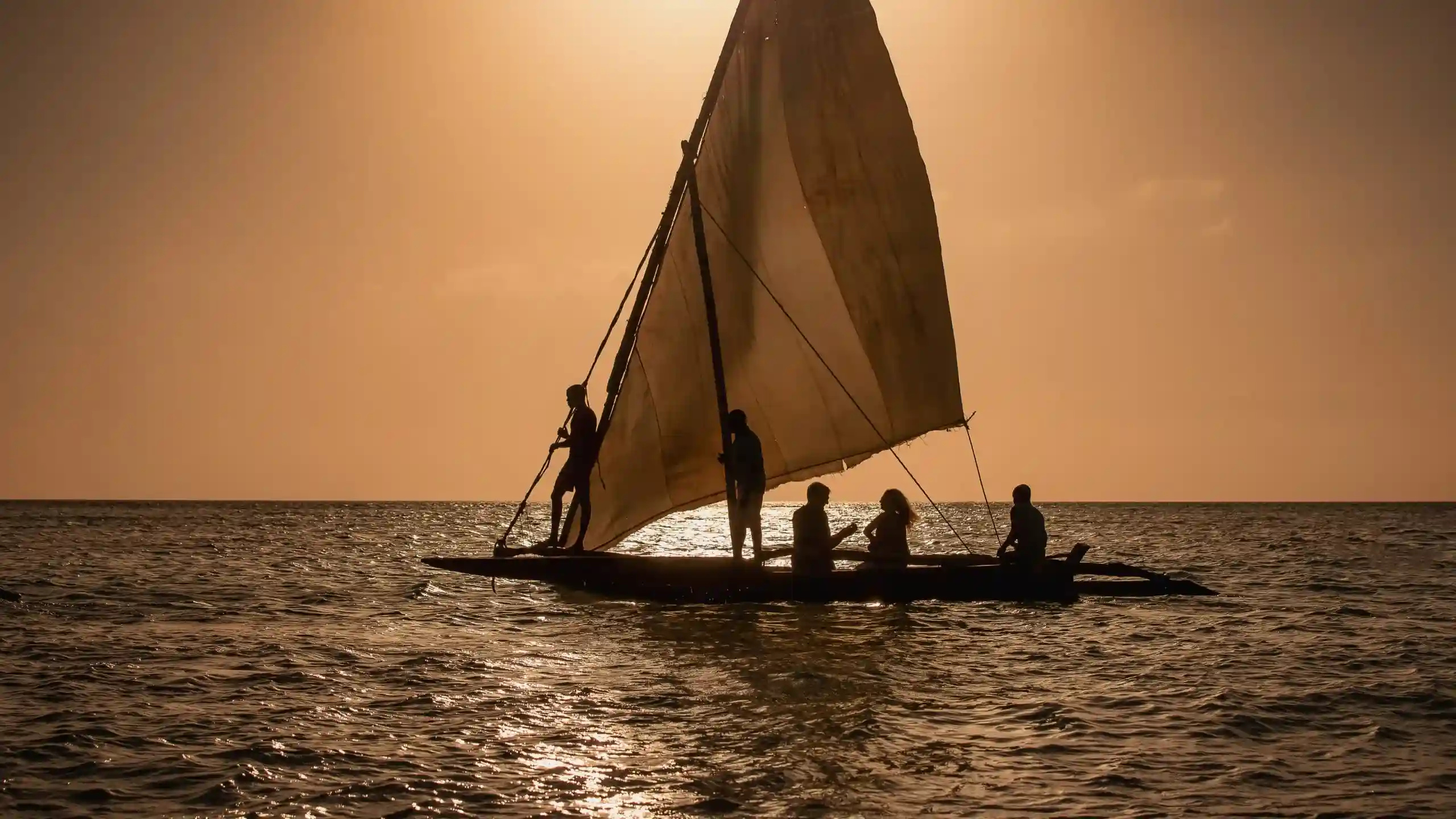
How do you get to Pemba Island?
Although Pemba remains off the beaten path, there are a few ways to reach this remote paradise. Chartered flights with Coastal Air or Auric Air are the most popular options, with most travelers flying from Unguja in just a quick 30-minute flight.
It’s also possible to fly from Dar es Salaam. Alternatively, you can take a ferry from Zanzibar to Pemba, though the crossing can be quite rough and at times, unsafe. Zazm Marine is the most dependable ferry service. Once you arrive at the airport or ferry port, your resort will likely arrange a pick-up, which may be included in your stay or added to your final bill.
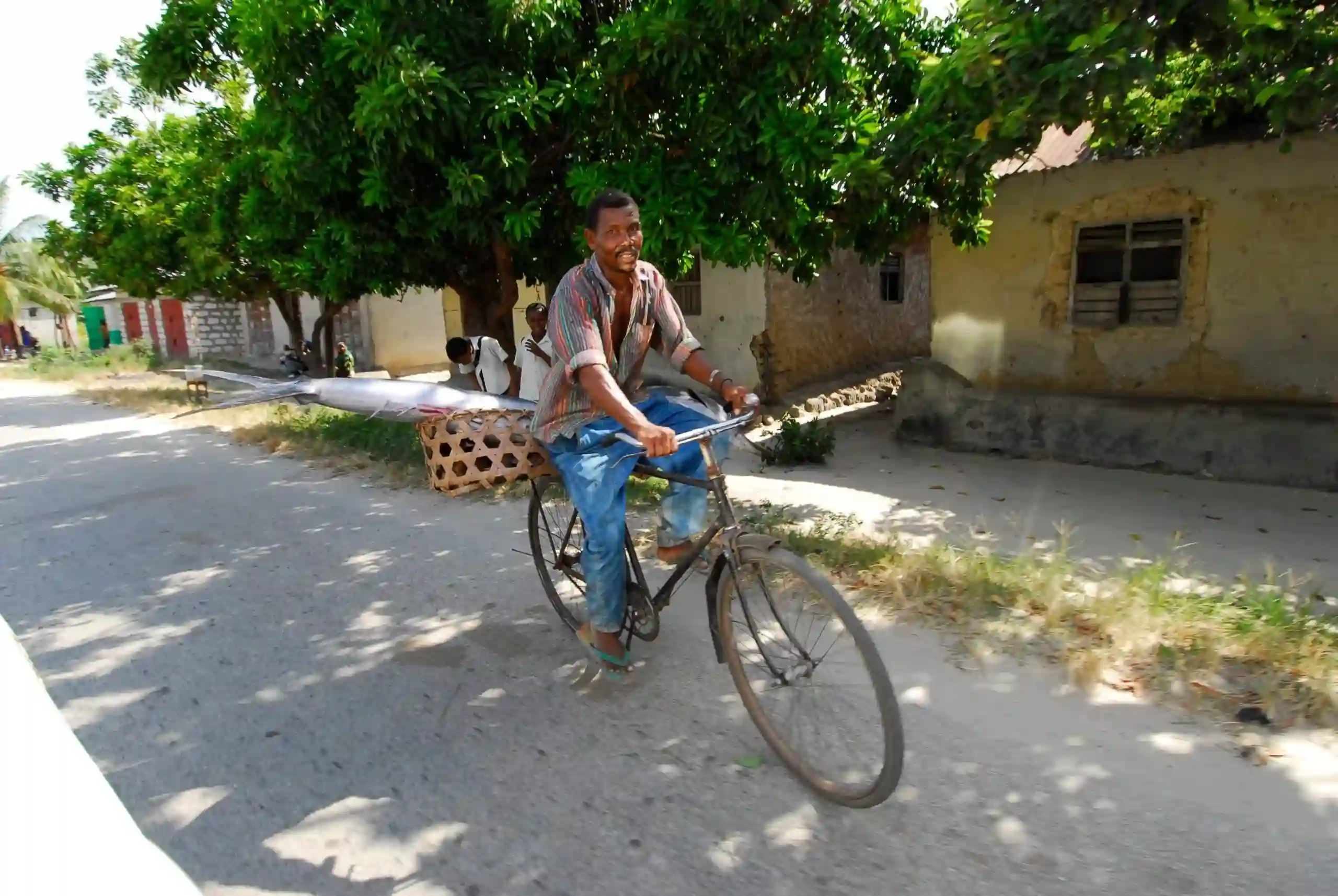
How To Get around Pemba?
Pemba has just one main paved road that runs through the heart of the island, making many of its sights hard to reach. Because of this, cycling is a popular way to get around, and you can rent a bike from most hotels for about $10 a day.
For those who prefer not to bike, there are buses and dala dalas (local minibuses) that operate along the main routes between towns and villages. These buses are simple and only depart once full, with no fixed schedules, and there’s limited space for luggage. Renting a car in Pemba is uncommon due to the island’s small size. Instead, most visitors hire a driver from a taxi rank or book a tour through their hotel. A car with a driver for the day usually costs between $50-$70, and the driver often doubles as your guide, taking you to the attractions of your choice.
Motorbikes can also be rented through Coral Tours in Chake Chake. Most activities on the island are arranged by your hotel, which also handles transport for you. Cultural and environmental experiences are scattered across the island, offering unique opportunities for exploration.
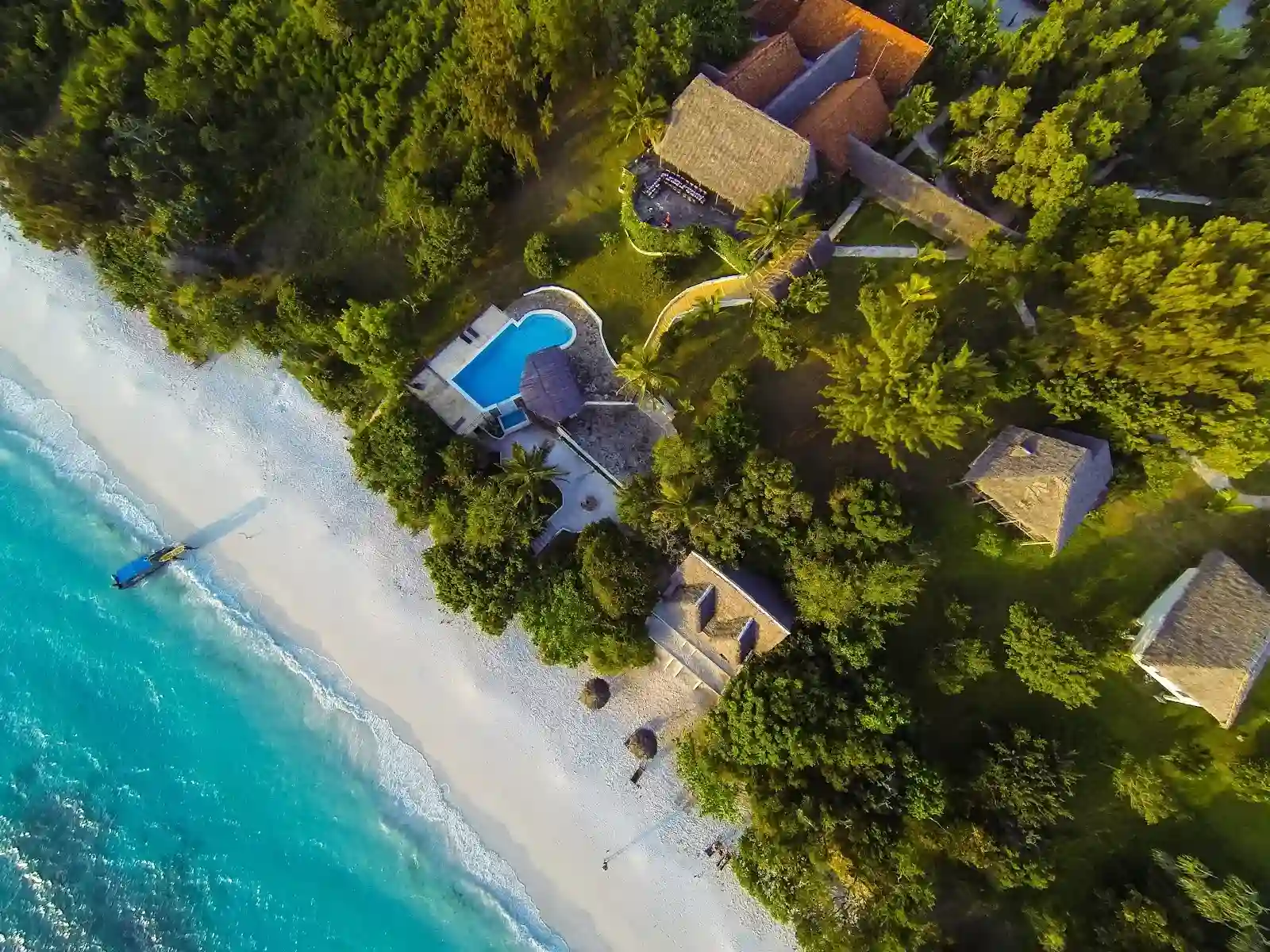
What See/Do At Pemba Island?
1. Archaeological sites
For history buffs, Pemba is rich in fascinating archaeological sites that are a must-see. One of the standout locations is Ras Mkumbuu, which boasts a mosque, ancient tombs, and 14th-century houses. Another key site is Chakawa, where the ruins of a town from the 11th to 15th centuries can be explored. The Mkama Nduma ruins are particularly intriguing.
This 15th-century palace is the only known fortification along the Swahili coast. To dive deeper into Pemba’s history and culture, a visit to the Pemba Museum in Chake Chake is highly recommended, where you can discover the island’s rich story. Chake Chake itself also features the remains of an old fort, adding to the historical charm of the town.
1. Archaeological sites
For history buffs, Pemba is rich in fascinating archaeological sites that are a must-see. One of the standout locations is Ras Mkumbuu, which boasts a mosque, ancient tombs, and 14th-century houses. Another key site is Chakawa, where the ruins of a town from the 11th to 15th centuries can be explored. The Mkama Nduma ruins are particularly intriguing.
This 15th-century palace is the only known fortification along the Swahili coast. To dive deeper into Pemba’s history and culture, a visit to the Pemba Museum in Chake Chake is highly recommended, where you can discover the island’s rich story. Chake Chake itself also features the remains of an old fort, adding to the historical charm of the town.
2. Spice farms
Pemba has earned the nickname ‘Clove Island’ because it is the world’s leading exporter of cloves. A visit to a spice farm offers the chance to see clove trees up close and learn how cloves are transformed into essential oils at the ZSTC Clove Oil distillery.
The Zanzibar archipelago is known as the ‘Spice Islands’ due to the abundance of spice farms in the area, and Pemba is no exception. In addition to cloves, the island’s farms also grow cardamom, cinnamon, turmeric, black pepper, lemongrass, vanilla, and nutmeg.
You can book a cooking class or take a tour of a spice farm, where you’ll learn about the cultivation process, discover the history of the spice trade in the region, and shop for some of the freshest and most authentic spices in the world.
3. Kidike flying fox sanctuary
This sanctuary is home to a colony of 4,000 Pemba flying foxes, a species of large bat native to the island. From a small viewing platform, you can watch these fascinating creatures as they hang upside down during the day and take flight in the evening.
Kidike is located just beside Kangagani village, about 2 kilometers east of the main road connecting Chake Chake and Wete. To get there, ask your driver to turn off the main road 10 kilometers northeast of Chake. Continue through Kangagani village, and the sanctuary will be on your right.
4. Scuba diving
Pemba is celebrated as one of Africa’s top scuba diving destinations. Surrounded by stunning underwater walls and diverse topography, the island is home to an impressive range of marine life, including turtles, reef sharks, hammerhead sharks, and big game fish.
The prime diving spots are found along the island’s west coast, particularly around Misali Island, the Kigomasha Peninsula, Fundu Gap, and Njao Gap, all of which are part of the Pemba Channel Conservation Area. While many divers here have prior experience, some companies offer courses and day trips for beginners. Visibility is excellent for most of the year, though it’s best to avoid the rainy seasons from April to May and November to December.
Deep-sea fishing
Deep sea fishing is a popular activity on Pemba, with options for half-day or full-day excursions. Anglers can try their luck at catching marlin, dorado, yellowfin tuna, and wahoo. Thanks to Pemba’s location near the Pemba Channel, there’s a great chance of reeling in big game fish, which can be grilled up fresh for dinner. The peak fishing season runs from mid-July to mid-April.
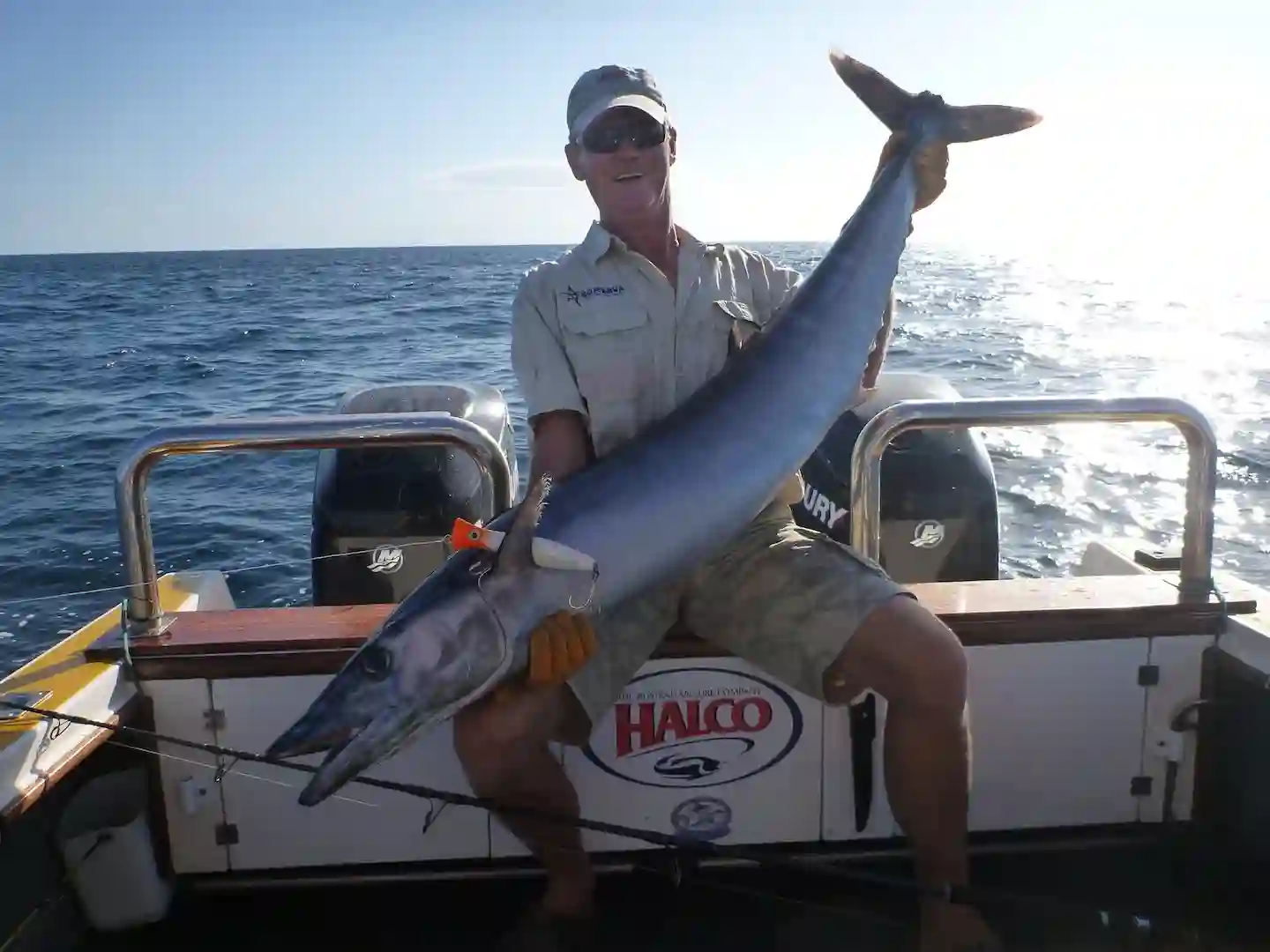
Where to stay on Pemba Island?
Pemba has a limited number of hotels, so it’s important to choose your accommodation wisely. While many hotels offer scuba diving and deep-sea fishing tours, it’s a good idea to confirm the activities they provide before booking.
Finding a hotel that aligns with your interests is key, as each one offers its own unique set of activities and amenities that can significantly impact your stay. Most accommodations are tucked away in secluded spots along the coastline, offering a peaceful and private experience.
The Manta Resort
The Mantra Resort is one of the island’s most luxurious stays, with its highlight being the Underwater Room. This unique experience features a floating deck in the middle of the ocean, where a glass-walled bedroom submerged beneath the surface offers stunning views of the marine life below. The resort offers a range of activities, including sandbank trips, deep-sea fishing, local school visits, catch-and-release fishing, kayak safaris, and snorkelling.
Its dedicated diving centre also provides lessons for beginners. If you’re looking for a more affordable option, Lala Lodge offers comfortable budget-friendly accommodation in the southern town of Mkaoni. Well-equipped and ideally located next to the beach, Lala Lodge provides a great, more economical alternative for travelers.
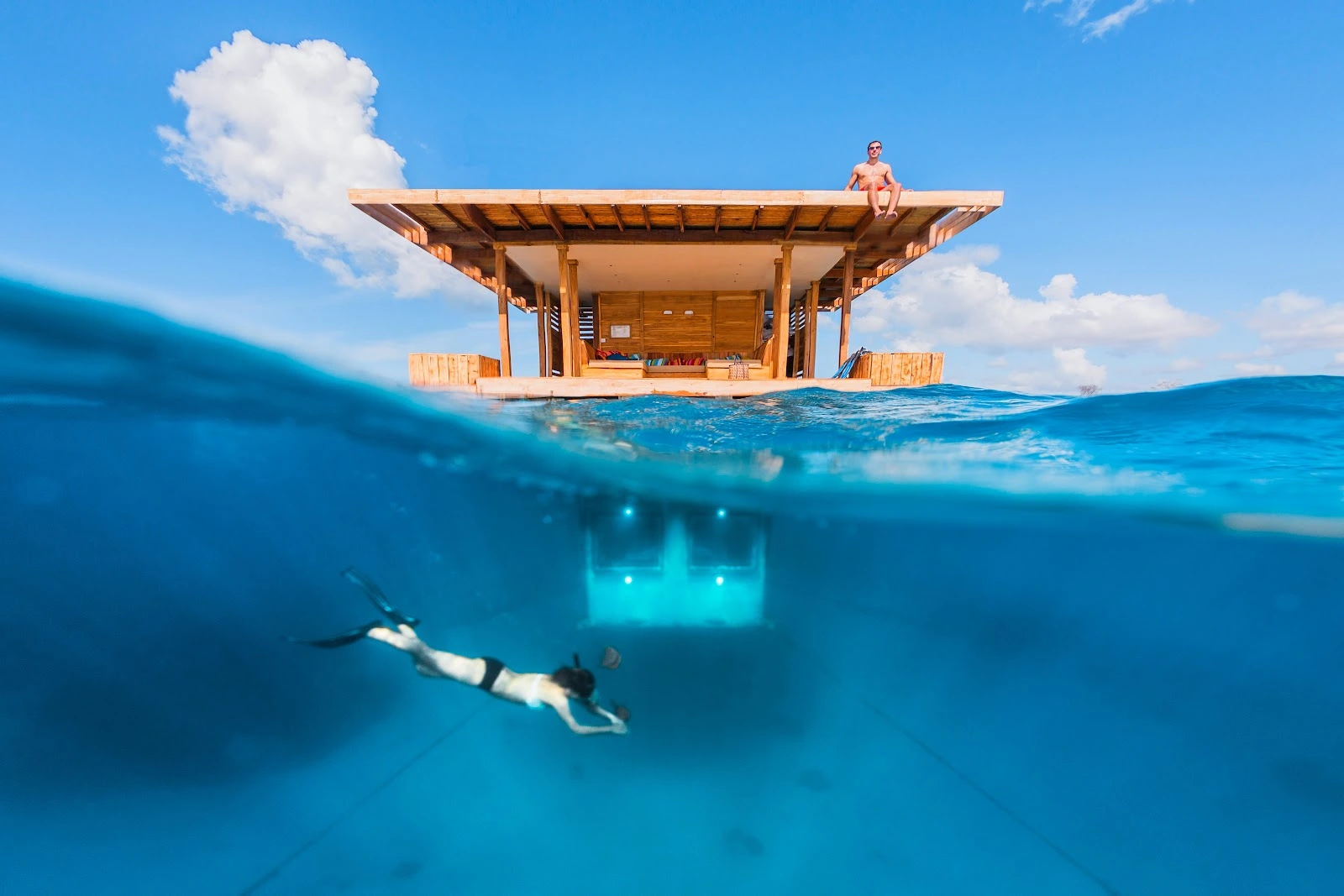
The Aiyana Resort
This expansive luxury hotel features 30 sleek, minimalist villas set on a private beach. Guests can enjoy an infinity pool and spa, or engage in more active pursuits like diving and golfing on the resort’s 18-hole course. With a dedicated kids’ club, it’s an excellent choice for families, but it also offers incredible options for weddings and honeymoons, making it a versatile destination for all kinds of getaways.
Fundu Lagoon
This luxury boutique hotel offers a laid-back “barefoot luxury” experience, featuring a private diving center and 18 safari-style tented bungalows. Several of these bungalows offer direct access to the beach and come with their own plunge pools. Each bungalow boasts stunning views of the Indian Ocean. With a spa, three bars, and an exceptional restaurant, this hotel is the perfect retreat for couples and honeymooners seeking relaxation and indulgence.
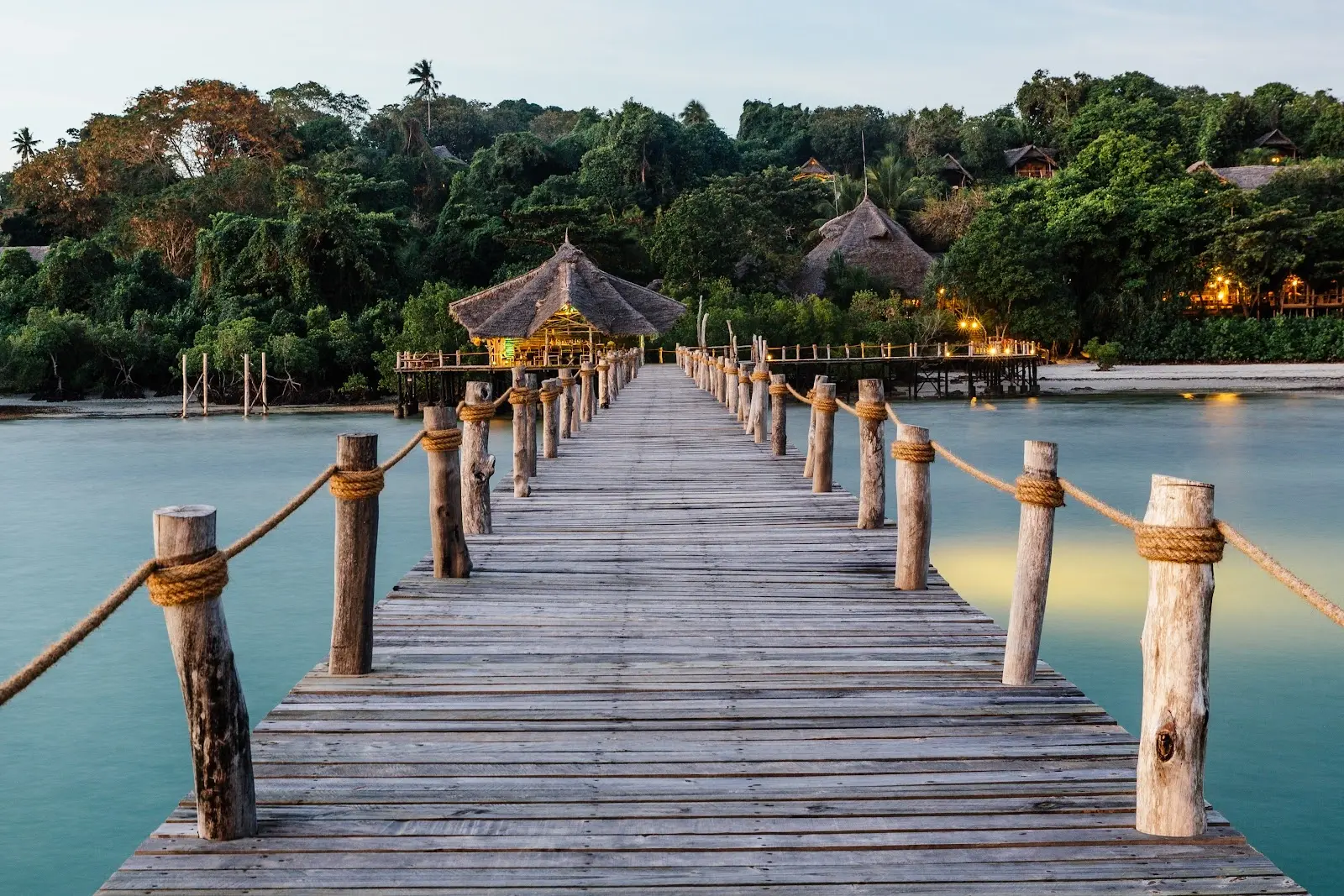
When to visit Pemba Island?
The island experiences its heavy rainy season from April to May, when many resorts close their doors. These monsoons are responsible for Pemba’s lush mangrove forests and swamps. A shorter rainy period occurs between November and December.
During these times, diving visibility is reduced, but there is the benefit of fewer malaria-carrying mosquitoes. Sitting on the equator, Pemba enjoys a consistently warm climate with an average temperature of 26°C throughout the year.
Is Pemba Island safe?
Pemba offers a relaxed atmosphere, and most visitors feel at ease during their stay. While the island is generally safe, it’s still a good idea to bring antimalarials, though many hotels provide mosquito nets for added protection.
Is Pemba part of Zanzibar?
Yes, Pemba is the second-largest island in the Zanzibar Archipelago. Unguja Island is the largest, while Pemba’s smaller neighbors are Mafia Island and Latham Island.
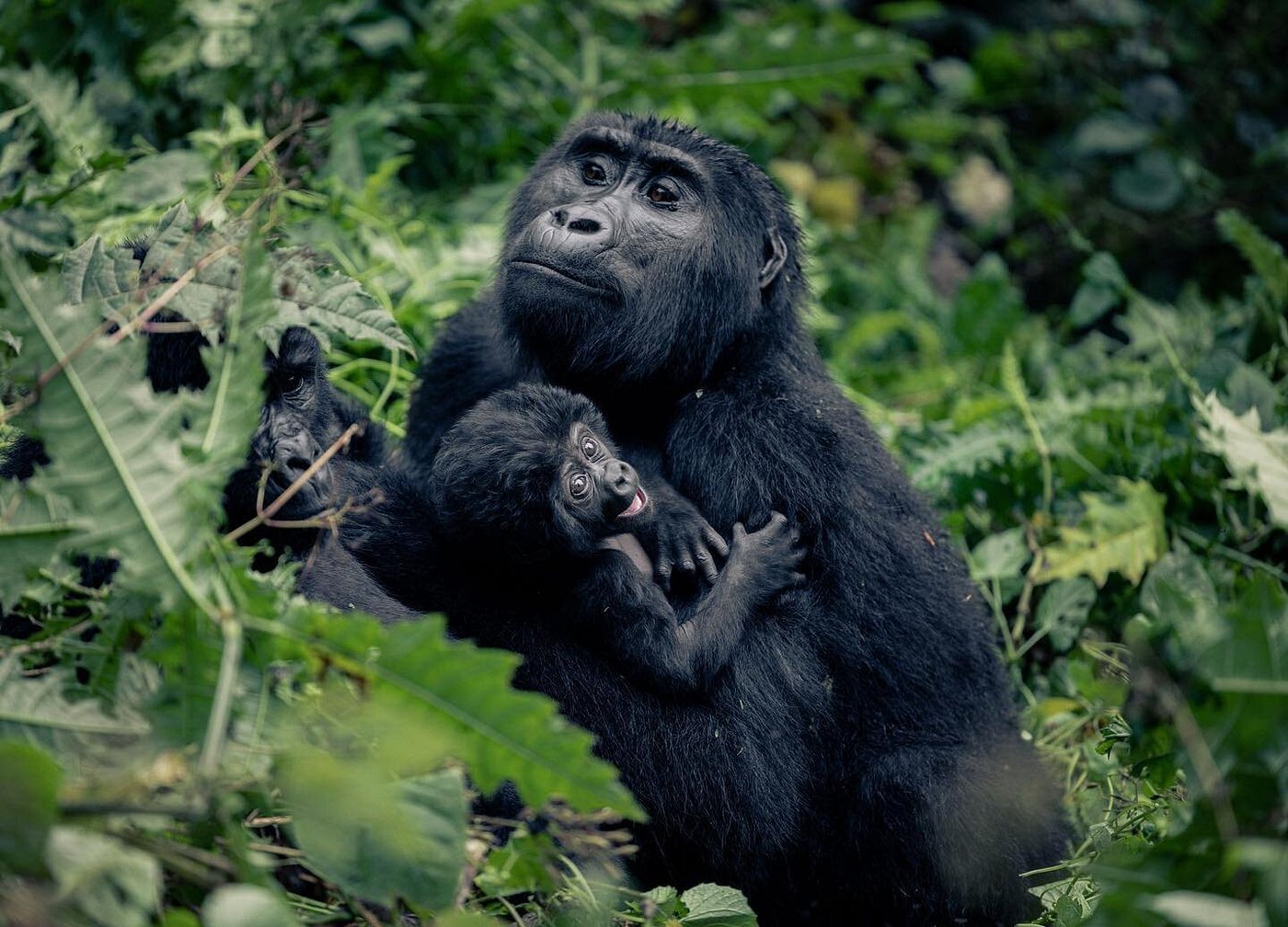
Talk To a friendly team
Africa Safaris
Safaris By Type
Top Safari Parks
Help & Info
- About us
- Travel Blog
- Travel FAQS
- Gorilla Permits Bookings
- Contact Us
- Pay Online
